#astor alexander
Explore tagged Tumblr posts
Text
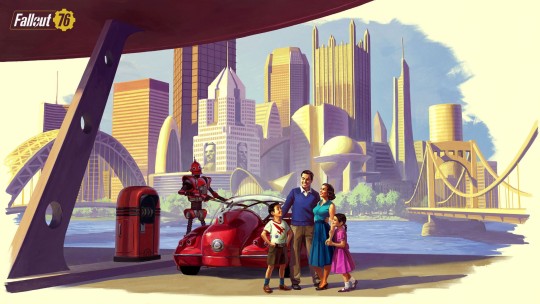
Season 10 Art
Art for Fallout 76
Art by Astor Alexander
91 notes
·
View notes
Text

Artwork by Astor Alexander for The Karate Kid: 40th Anniversary Original Motion Picture Score Vinyl
#Art#The Karate Kid#Astor Alexander#Daniel LaRusso#Mr. Miyagi#Johnny Lawrence#John Kreese#Miyagi-horiginal#They're so beautiful...
261 notes
·
View notes
Text

Conan the Barbarian is joining Super 7's ReAction Figures line. The first wave features Pit Fighter Conan (with two hand blades), Thulsa Doom (with helmet and dagger), and Subotai (with bow and arrow).
Each 3.75" retro-style toy has five points of articulation and features backer card art by Astor Alexander. Priced at $20, they're expected to ship in April.
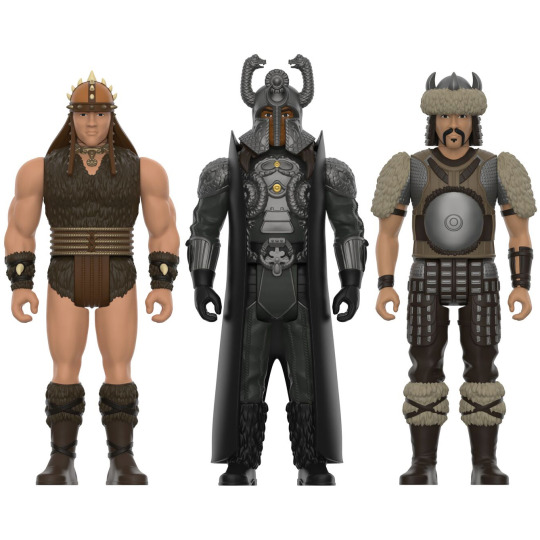
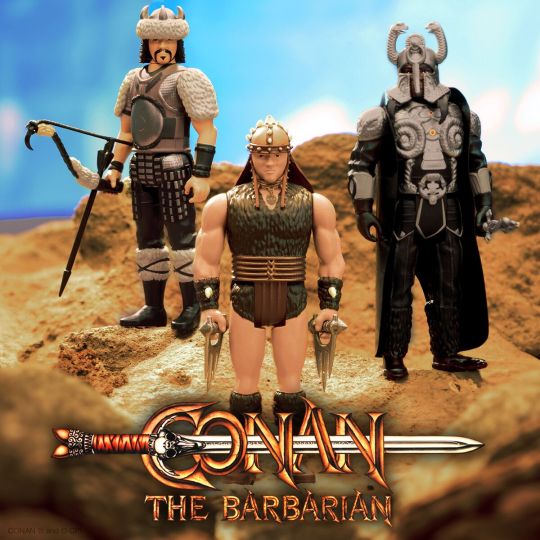
#conan the barbarian#arnold schwarzenegger#thulsa doom#james earl jones#80s movies#1980s movies#super 7#reaction figures#toy#gift#john milius#oliver stone#sword and sorcery#robert e. howard#astor alexander
21 notes
·
View notes
Text
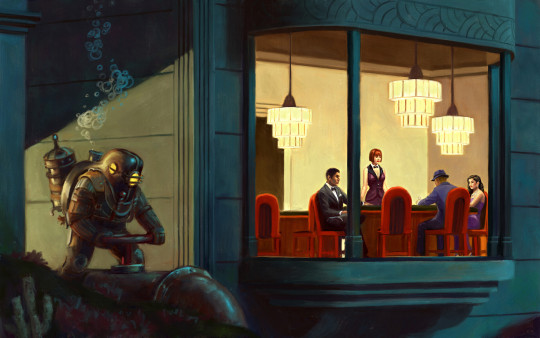
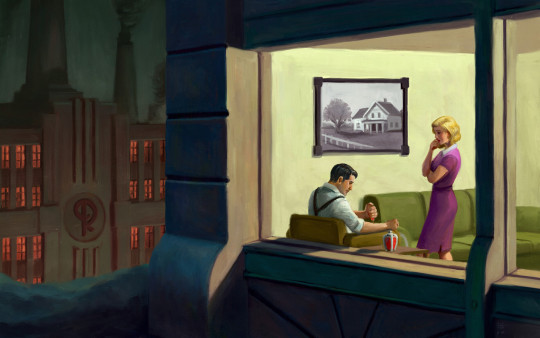

Hopper Went to Rapture by Ástor Alexander
0 notes
Note
Throwing my questions in the ring(づ ̄ ³ ̄)づ
Two for Alex:
- How is it teaching in Valhalla? Anything that would be different from human education?
- WHO IS THE BIG SPOON AND LITTLE SPOON!
________________________________________The rest are general questions for everyone!
- What is the most dumb thing each one has ever done?
-Is there someone they like to mess with specifically?
-Do they have any regrets from the time they were alive?
- Who would most likely befriend gods? If so which gods?
That's all pookie<( ̄︶ ̄)>
AAAA THANK U FOR THE QUESTIONS POOKIE!! <3 For Alex: It is different in a sense that this man has to teach the young gods and OH LORD HE NEEDS SLEEP SO BAD. Legit, despite the fact that he is a human he knows some things much better than anyone (like old magic and the generall customs and rituals of the different gods) so the Academia just places him in whicherver class possible. And another thing that is different, is that many young gods are just- brats. Imagine the worst class possible and Alex gotta deal with them all. (which, he can. at the end of the day, he is a great techer and knows how to do his work. but it aint his fault if some of his students dont want to remeber anything) In short- its more stressful (and he needs a long vacation which is long overdue-) AND FOR THE BIG AND LIL SPOON QUESTION!! Very silly but Alex is actually the big spoon! Even if Jack tries- the british man always ends up being the lil spoon. (Alex is like a smoll cuddly bear ngl. very nice to hug and will hold u comfortably) Now to the rest! What is the most dumb thing each one has ever done? = Alex: Some silly things did happen but i dont think he ever had a "the most dumb thing" kind of situation. Maybe he took on the shirt the wrong way or mixed up some books. (or randomly switches to russian when speaking to Jack. especially when nervous- only to then translate it all to him-) Pero: Eazy- Thought she could eavesdrop on Jack and Alex (cuz gurl was worried about her brother) and didnt notice the door was slighly open. she fell into the room (she refused to leave her chambers for almost 2 weeks) Astor: Casted the wrong spell even though he did it like 100 times- welp there was a storm aferwards Anderson: Tbh- i am unsure? Pushkin: Duell his friend. He died afterwards Natalia: perhaps not stopping her husband from duelling his friend-
Is there someone they like to mess with specifically? Alex and Pero frequently mess with each other- if the siblings dont go one day without messing with each other, something is off Astor: It seems to be so bonkers- but Loki, Heimdall and Brunhilde. Andersen: Fr- this man prefers not to mess with anyone. He had enough- Pushkin: Guess what, with his Friend whom he duelled (aka George-Charles) Natalia: No one really. However if you mess with her she will not hesitate to throw whatever at you.
Do they have any regrets from the time they were alive?
Alex: Not saving his sister from Luke Evans (aka the actual Ripper) Even in Valhalla after finally beinf reunited, he still blames himself for it terribly.
Pero: If she wouldnt have found Luke Evans in Valhalla (and send him to Nifelheim), she would be like "not killing him", but she did that a n d she has her brother back, so pretty much any regrets she had just dissapear. Astor: Not being able to see his mother one last time before going into the battle where he lost his life.
Andersen: Being alone, in a romantic sense. While he had his friends of course, but not someone he had a close connection with.
Pushkin: IRONICALLY- duelling Charles. Because it was actually stupid and he acted on raw emotions.
Natalia: While she may had some, while still alive, fortune turned to her and basically made her life easier which made her regrets, of being alone go away.
Who would most likely befriend gods? If so which gods?
Who def would befriend gods is for sure Alex, Astor, Natalia and somewhat Pero. Alex has a close connection to the Nordic Pantheon, just like Pero, so that leads to some friendly interactions from time to time. He gets along with Frejya and Odin actually. He had some relations with the Slavic Pantheon but tries to ignore them as good as possible- the Goddess Zvezda is someone he does however talk to, but only because of his sister Pero (who has a lil crush on this Goddess) For Astor- he has to interact with pretty much every god. Unofficially he is Lokis right hand so he almost always has some bussiness with some other gods. He would for sure be friends with Buddah tho and Anubis. Natalia would most likley befriend Aphrodite and Hera. woooo! this was a long one haha :D sorry if there are some spelling mistakes- its like 2 am or sum here so- slay
#cyber talks#record of ragnarok#record of ragnarok oc#alexander volkov#pero#hans christian andersen#alexander pushkin#natalia pushkina#Astor#mii-cherry
5 notes
·
View notes
Text

This is a thinkpiece written by a submitted writer. It may not express opinions of Legends Magazine.
In the age of social media and instant judgment, the public's fascination with celebrity relationships often leads to heated discussions and relentless scrutiny. In the case of Fletcher, the 27-year-old heir to Amazon, and Bonnie, the 22-year-old singer, their relationship has become a subject of widespread attention. However, what raises concern is the stark contrast in how they are treated in the court of public opinion.
Fletcher's journey on the reality show Dollhouse brought to light a complicated history with his ex-girlfriend, Poppy Park, a 25-year-old singer. Despite his emotional closeness to Poppy during the show and the revelation of potential emotional cheating, the public's response has been surprisingly lenient towards Fletcher.
In contrast, Bonnie, his current wife, has faced relentless criticism and mockery, primarily due to the interactions with Fletcher's best friend and bandmate, Parker Alexander. Parker's constant attacks on Bonnie, coupled with Fletcher's public emotional cheating (and her staying with him afterwards), have made her an easy target for ridicule on the internet.
The question that arises is: Why is Bonnie subjected to harsh judgment, while Fletcher seems to escape relatively unscathed? One possible explanation lies in societal double standards that tend to be more forgiving towards men's indiscretions while harshly judging women for their mistakes.
0 notes
Text

Announcement from Spacelab9 -
Mass Effect: Andromeda vinyl ! including new artwork.
"MASS EFFECT: ANDROMEDA 3LP SET IN TRI-FOLD JACKET PRE-SALE DATE TO BE ANNOUNCED SOON"
"ANNOUNCING THE MASS EFFECT: ANDROMEDA TRIPLE LP SET Celebrate the 8th anniversary of the release of Mass Effect: Andromeda with the official three-LP soundtrack collection by acclaimed composer John Paesano! The Mass Effect: Andromeda vinyl soundtrack features beautiful, all-new custom artwork by renowned artist Astor Alexander plus liner notes and imagery from the game, all packaged in a deluxe tri-fold jacket with spot UV highlights. An exclusive vinyl variant will be available for pre-order from Spacelab9.com - Stay tuned for the upcoming pre-sale date announcement. Eight years ago, on March 21, 2017, Mass Effect: Andromeda launched, bringing the iconic sci-fi RPG franchise to a new galaxy with a fresh perspective. From pulse-pounding action sequences to emotive moments of discovery and loss, the cinematic score transports you back to the alien worlds, mysterious technologies, and unforgettable characters that define the complex journey of the Andromeda Initiative."
[source]
141 notes
·
View notes
Text
You know what time it is - today marks the 8th anniversary of my fic My little test subject and all the other works that take place within the same universe!
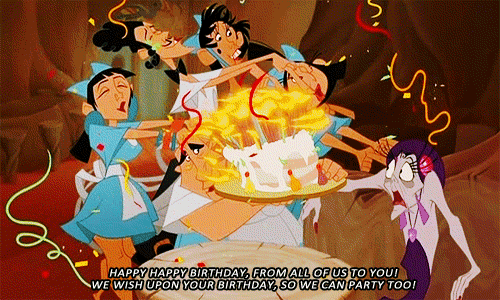
8 years... it's a hell of a long time, but I greatly enjoy the work I put into my writing, and of course sharing it on the internet for all of you to enjoy! Even 8 years after I set out on the mission of writing tomtord soap opera I still find within me plenty of fun material to write and explore and I can only hope you guys will enjoy what I have in store for the foreseeable future. Thank you guys so much for all of your support - for the nice comments you leave on my fics, the fangirling in my inbox, the meaningful heart to hearts on my pms, all the lovely fanart, and of course the immeasurable faith you have in me to handle this story and coming along with me on this journey for the last 8 years <3 It means the world to me that you still hold interest in my work and enjoy my content. I work hard to improve myself every day so I can set out to create even more amazing content for you to enjoy - it's the only possible thing I think I can give to you in return as thanks for the support you've shown me over the years.
Today we start the beginning of ACT 2 of Always Gold and the frequent updates. As always, from now on a brand new chapter will be released once every two weeks until I run out of chapters.
Don't forget to check out the official playlist for the fic right here!
My little test subject and Always Gold.
Speaking of which, would you guys rather I move the playlists over to on spotify? Would that be preferable or should I keep it on youtube? Tell me your thoughts!
Chapter 29 of Always Gold is now up!
Featuring special character appearances from:
Terrance by @ianwoodsisadilf
Alexander by @houndbytez
Adrian by @fellow-queer-birdguy
Maya by @leilaniethefirst
Blake Fjellkjede by @artsyjaybird
Cindy by @jekna-karma-lokert
Stella by @depressedbat
Valery wu-sanchez by @sunnyweatherz
Cedar by @collector-of-tommys
Charlotte Hope by @chessb0r3d
Aiden by @tiredthings1
Daisy Whitfield by insomiac-flaffy
Grazhdanskaya by @versace-will-never-be-the-same
Bianca by @salt-apple
Leela Warner by Fanimaniac4ever101
Helios Astor by @local-sourboy
Harriet by @xurviving
Wynter Loyrrox by @sonjuponju
Kai by @faefoundmoon
Amaya by @psychicgoopsuitcasemonger
Thank you for reading, and I'll talk to you guys later. HAPPY HALLOWEEN! Boop
58 notes
·
View notes
Text
John Jacob Astor IV is the only person who died on the Titanic that I can remember by name and I don't know why, I guess I just think he's interesting. He was the richest person on board, wrote a book about living on Jupiter and Saturn in the year 2000, "A Journey in Other Worlds" (which I haven't read yet but it's on my list), and is buried in the same cemetery where Alexander and Eliza Hamilton are buried (Trinity Church in New York). He was married to his second wife (who survived the sinking, she was five months pregnant) for only a year before he died. He was 47 years old
Please pray for him along with the other passengers who died
23 notes
·
View notes
Text

STARTING WITH A

MASCULINE︰ aarav. aaren. aaron. abdiel. abe. abel. abner. abraham. abram. ace. adair. adam. adan. aden. adirel. adler. adonis. adrian. adriel. aidan. aiden. al. alan. alban. albert. albie. albin. alden. aldo. aldous. alec. alejandro. alessandro. alex. alexander. alexis. alf. alfie. alfonso. alfred. algar. alger. ali. alijah. allan. allen. along. alonzo. alpha. alphonso. alphonzo. alton. alva. alvin. amari. ambrose. amer. amery. amias. amir. amos. anakin. ander. anderson. andie. andre. andres. andrew. andy. angel. angelo. angus. ansel. anson. anthony. antonio. apollo. archer. archie. ares. ari. aric. ariel. aries. arin. arjun. arlen. arlie. arlo. arlow. armando. armani. arn. arnie. arnold. arron. arthur. arturo. arvel. as. asa. ash. asher. ashley. ashton. ashtyn. aspen. aster. astor. atlas. atreus. atticus. audley. august. augustine. augustus. austen. austin. avery. axel. axl. axton. ayaan. aydan. ayden. azariah. aziel. azure.

FEMININE︰ aaliyah aaralyn abbey abbi abbie abby abegail abi abigail acacia ada adair adaline adalyn adalynn adamina addilyn addison addyson adele adelyn adria adriana adrianna agatha aggie agnes aimee ainslee ainsley ainslie alaia alaina alana alanis alannah alannis alaya alayah alberta alea aleesha alesha alesia aletha alethea alex alexa alexandra alexandrea alexandria alexandrina alexia alexina alexis alexus alfreda ali aliah alice alicia aline alise alisha alisia alison alissa alisya alita alivia allana allannah allegra allie allison allissa ally allycia allyn alma alora alvena alvina alyce alycia alys alysa alyson alyssa alyssia alyx amabel amanda amaya amayah amber amberly amberlynn ambrosine amelia amery amethyst ami amie amilia amity amora amoura amy anabella anabelle anastasia anaya andi andie andrea andrina anemone angel angela angelia angelica angelina angelle angie anima anise anissa anita anjanette anjelica ann anna annabel annabella annabelle annabeth annalee annalise annette annie annora anona ansley antonette april araminta ardath ardith aretha aria ariah ariana arianna ariel ariella arienne arin ariyah arlie arline armani aryana ash ashlea ashlee ashleigh ashley ashlie ashlyn ashlynn ashton ashtyn aspen aspyn aster aston astoria astra astrid athena aubrey aubrielle audrea audrey augusta aura austyn autumn ava avalon aveline averie avery aviana avianna avonlea avril ayla azalea azaria azura azure

NEUTRAL︰ able. abraid. absinthe. absolute. absolution. acacia. accord. ace. acid. ad. adair. adler. adrian. adrien. aiden. akira. alden. alex. alexis. ali. alias. alien. alistair. alive. allium. allure. alpha. alto. always. amalgamation. amani. amar. amari. amaris. amber. ambrose. amethyst. amiri. amor. analogue. anchor. and. anderson. andrea. andromeda. angel. ant. anthem. anti. antidote. apex. apotheosis. apparition. apple. april. arc. arcane. archer. arden. ares. ari. arian. arie. ariel. aries. aris. arlo. armani. armoni. arrow. arsenal. arsenic. artemis. aryan. as. asa. ash. asher. ashley. ashtyn. aspen. asset. aster. ataraxia. atlas. atrocity. auden. august. augustine. aura. austen. austin. austyn. author. auto. autumn. avery. avi. awake. axel. axis. ayan. azariah. azrael. azriel. azul. azure.

24 notes
·
View notes
Text
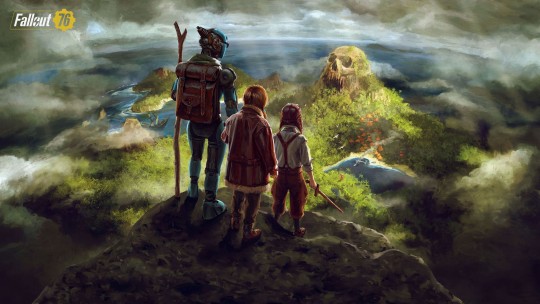
Season 9 Art
Art for Fallout 76
Art by Astor Alexander
26 notes
·
View notes
Text
Seven (and more) sentence Sunday
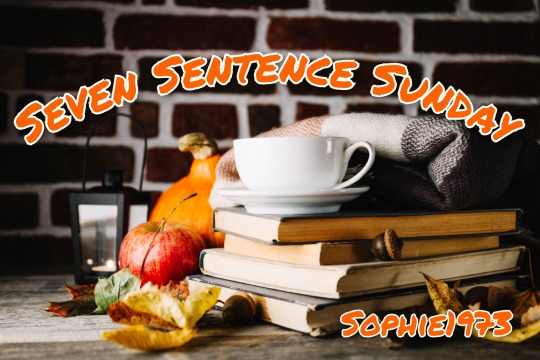
I was tagged this week by @iboatedhere @thesleepyskipper
@taste-thewaste @theprinceandagcd @onthewaytosomewhere
@fullerthanskippy @caterpills (tagging you all back lovelies)
Here is a very fresh (as in written 30 minutes ago) snippet of chapter 5 of Bloodstream. Almost 6k written, a bit past hafway done, we are nearing the end.
Tags under the cut
Alex takes a deep breath, savoring the soft breeze that brings a refreshing touch to the warm June afternoon. The city's noise fades into the background as he meanders along the park's paths, allowing the tranquility to soothe his mind. After a long day of dull appointments and challenging clients, this stroll through Central Park feels like a much-needed escape. The late afternoon sun casts a golden glow through the green leaves, illuminating other walkers and guiding him toward Bethesda Terrace.
Alex's steps falter slightly as he spots a familiar figure near the fountain. Henry is standing there, engaged in conversation with an older couple. Alex hesitates, unsure whether to make his presence known or just walk around the fountain and continue his journey. It's not that he doesn't want to see Henry—quite the contrary—but he's never certain how comfortable Henry is being seen together in public. While logically, Alex knows that Mary Mountchristen-Windsor probably doesn’t have goons watching them all day, every day, he also understands the anxiety Henry feels about Alex’s safety, especially after the werewolf episode. It’s Henry who makes the decision for him. Just as Alex considers slipping away unnoticed, Henry spots him. The moment Henry’s eyes lock onto his, a radiant smile spreads across his face, brightening his face. Alex's stomach does a joyful flip, and he feels a surge of giddy anticipation. It’s the first time he sees Henry being so openly happy to see him while they are in public. Alex closes the distance and approaches them, unable to keep a broad grin from spreading across his own face. “Lord Mountchristen-Windsor. Fancy meeting you here.” "Mr. Claremont-Diaz," Henry greets, his voice carrying the same genuine happiness reflected in his smile. He turns to the older couple and says, "Gertrude, Rupert, this is Alexander Claremont-Diaz." Alex does his best to suppress the shiver that always runs through him at the sound of Henry pronouncing his full name with that fucking accent of his. “Alexander, these are Gertrude and Rupert Giles. They are from London and moved here two years ago. Mr Claremont-Diaz is a lawyer. He works notably for the Astors and the Morgans.” Alex forces himself to look away from Henry’s face and greets the couple, engaging in some polite small talk. However, the conversation only lasts a couple of minutes before his eyes are irresistibly drawn back to Henry. He can't help but admire the subtle blush adorning Henry’s cheeks—he suspects his own presence might be the cause—and the way the light breeze tousles his blond hair. God, he is so fucking hopeless.
Tagging also @kj-bee @bitbybitwrites @blueeyedgrlwrites @wordsofhoneydew
@swoonoveryou3 @fckngyrs @whoevenknows-things @anincompletelist @tailsbeth-writes
@piratefalls @ash-morrison
#red white and royal blue#firstprince#alex claremont diaz#henry fox mountchristen windsor#Henry the Reluctant Slayer#Bloodtream fic#Sophie1973
20 notes
·
View notes
Text
EXCLUSIVE: HBO‘s The Gilded Age has tapped six for supporting roles in Season 3: Dylan Baker (The Good Wife), Kate Baldwin (Broadway’s Hello, Dolly!), Michael Cumpsty (Severance), John Ellison Conlee (Boardwalk Empire), Bobby Steggert (The Marvelous Mrs. Maisel), and newcomer Hannah Shealy (The Rose Tattoo).
Baker plays Dr. Logan, a family doctor who treats a number of high society families, with Baldwin as Nancy Adams Bell, the older sister of John Adams (Claybourne Elder). Cumpsty portrays Lord Mildmay, a British nobleman who comes to dine at Sidmouth Castle, with Conlee as the successful, educated and polished businessman, Weston; Steggert as the famed artist John Singer Sargent, who has just begun his career painting the great ladies of society; and Shealy as Charlotte Astor, the married daughter of Mrs. Astor (Donna Murphy), recently returned from an eventful trip abroad.
Currently filming its third installment, The Gilded Age is an ensemble drama telling the story of The American Gilded Age, a period of immense economic and social change, when huge fortunes were made and lost overnight. With the old guard officially deposed, New York society finds itself turned upside down, and all must get their house in order. But even those at the helm of this new era may find that change comes at a cost.
Other newcomers in Season 3 include Bill Camp as JP Morgan, Merritt Wever as Monica O’Brien, Leslie Uggams as Mrs. Ernestine Brown, Lisagay Hamilton as Frances Ellen Watkins Harper, Andrea Martin as Madame Dashkova, Paul Alexander Nolan as Alfred Merrick, Hattie Morahan as Lady Sarah Vere, and Jessica Frances Dukes as Athena Trumbo.
The Gilded Age is created by Julian Fellowes, who writes and exec produces alongside Sonja Warfield. Other executive producers include Gareth Neame, David Crockett, Michael Engler and Salli Richardson-Whitfield (who also direct), and Bob Greenblatt. Erica Dunbar serves as historical consultant and co-executive producer.
A co-production between HBO and Universal Television, a division of Universal Studio Group, the show’s casting directors are Bernie Telsey and Adam Caldwell from the Telsey Office.
Baker is represented by Innovative Artists and Viking Entertainment; Baldwin by Paradigm and Schachter Entertainment; Cumpsty by Innovative Artists; Conlee by Innovative Artists and Meghan Schumacher Management; Steggert by Wolf Talent Group; and Shealy by Untitled Entertainment and CESD Talent Agency.
6 notes
·
View notes
Text
Fallout: Wasteland Warfare: Forged in the Fire
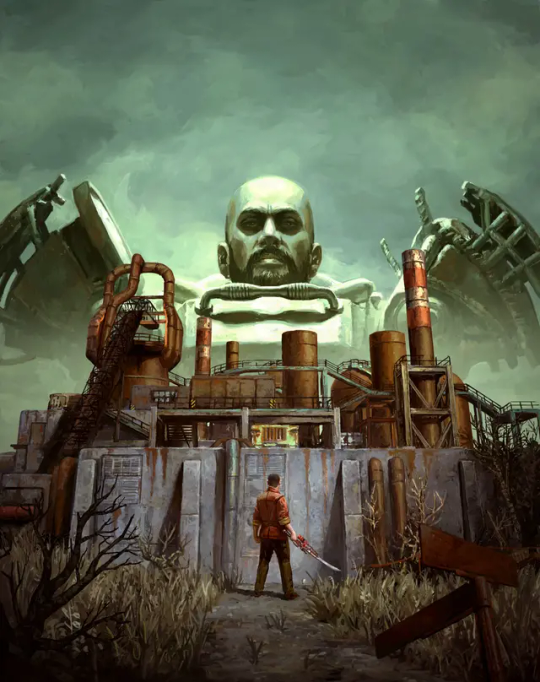
Pictured: Cover art for the Forged in the Fire Rules Expansion for Fallout: Wasteland Warfare.
This art was done by Astor Alexander, who has created cover art for Fallout 76 for the various Seasons and Updates.
Committing what the Forged sees as crimes results in many different punishments, which includes being fed to the forge, being fed molten iron, being branded and being flayed to death.
You can read about the Forged here:
https://fallout.wiki/wiki/Forged
#fallout wiki#independent fallout wiki#fallout#fallout series#fallout 4#fo4#wasteland warfare#foww#wargaming#forged#the forged#fallout wargame#tabletop wargaming#fallout wiki pictured#fallout artwork
26 notes
·
View notes
Text

Attention everyone! It's time for a wedding and not just any wedding, the wedding you all have been waiting for! Jordan Alexander Barnes and Francesca Astor invite you all to share their blessed day with them. If you are in the wedding, then you already knew all these details, and if not, then well, I'm here to give you the details! Where: Manhattan Penthouse, 80 Fifth Avenue, E 14th St, New York, NY 10011 Attire: Wedding appropirate. When: Monday December 11th to Wednesday, December 20th Since some of you may not know what wedding appropriate means, it means, if you do not wear the colors that the bride and groom have selected for the wedding. I saw the photos that Francesca sent out and she has a red look for her wedding party. Most likely, the men in Jordan's party are gonna be having red too, so no red. Women, also, no white, no wedding gowns, etc. Men, show up in a tux and do not look like a bum. For this event, please tag all starters, photos, songs, etc as ggwedding and ggwedding only! Can't wait to see you all there. XOXO, Gossip Girl
19 notes
·
View notes
Text
The fun thing about reading books about old Hollywood and then watching old movies is knowing that Sheridan Whiteside from The Man Who Came to Dinner and Waldo Lydecker from Laura are based on the same guy: Alexander Woollcott, who was just that queer (ace, gay, homoromantic? who knows), and how Hollywood was scared that having Monty Woolly play him would possibly make him SO GAY that Middle America might twig to it and that was a legit concern.
Also it's knowing that one of the two writers of the play this is based on was mentioned in the diary of I think Mary Astor and that diary entry was *read aloud in court* in her husband's divorce proceedings against her because she describes sex with him and anyway, he made her come five times.
Is this knowledge useful in any way? NOPE. But it's in my brain. and useless because I can't remember if mr five times was kaufman or hart.
Anyway.
#sheridan whiteside AND waldo lydecker are the bitchiest old catty bitches though so...#but did middle america get it? did they?
14 notes
·
View notes